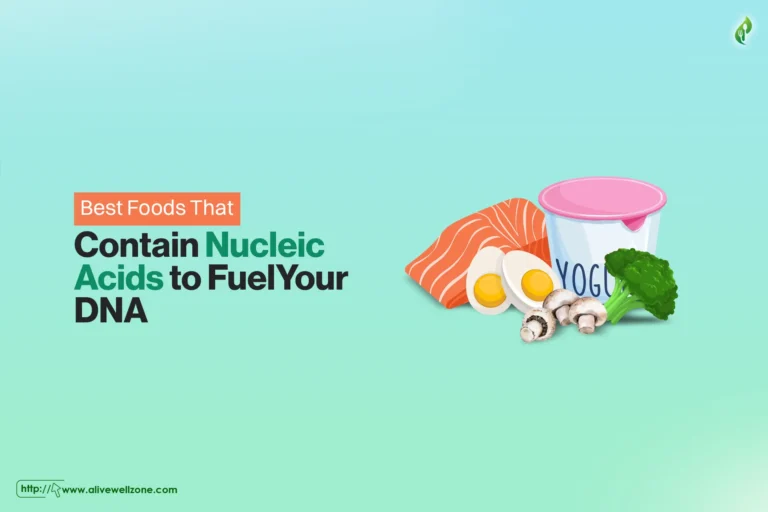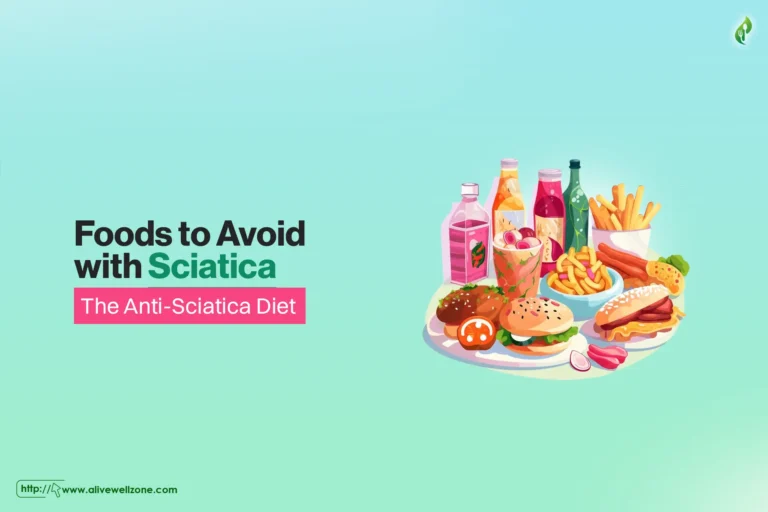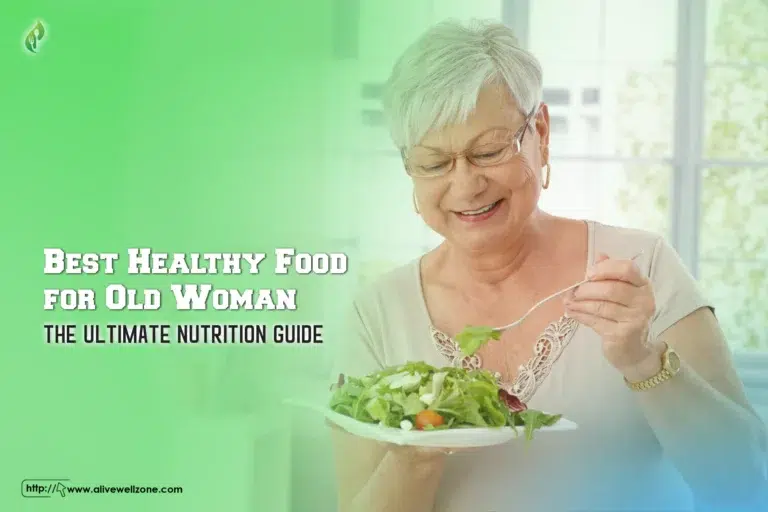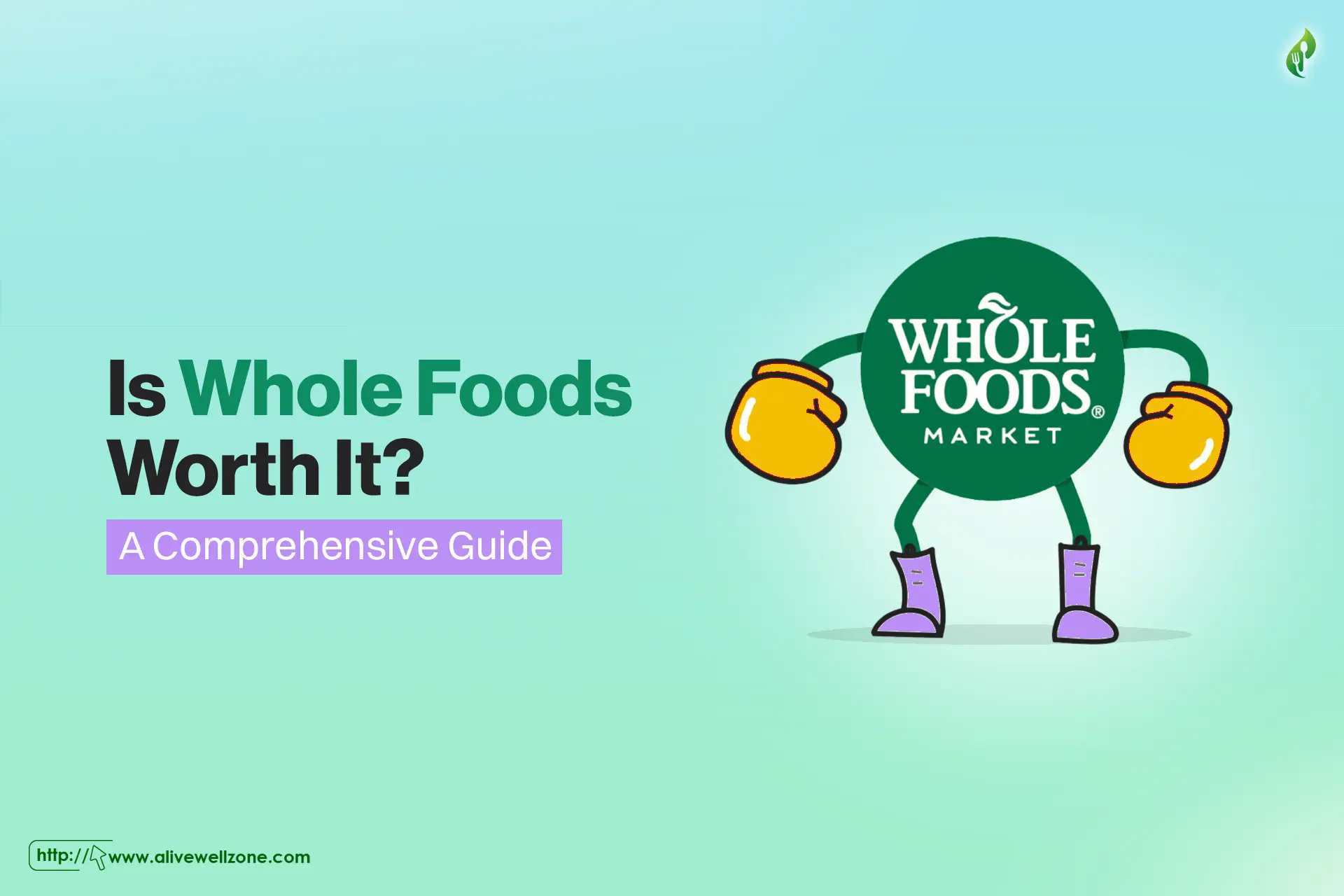
Last Updated on November 14, 2024 by Helena Akter
Have you ever found yourself in a Whole Foods aisle, wondering if the price tag is justified? It’s a question many shoppers ask when balancing budget with quality, organic items. What counts isn’t just the price, but how much value it adds. And that brings up the question, is Whole Foods worth it?
Yes, Whole Foods is a worthy choice because it provides top-notch organic goods, backs local suppliers, allows you to taste before buying and offers Amazon Prime discounts. While slightly more expensive, the store assures quality, promotes environmental sustainability, and provides a unique shopping experience.
Today, we’ll discuss the pros and cons of shopping at Whole Foods. You’ll get insights into their dedication to quality, exclusive offers, and support for local producers. It’ll help you decide if Whole Foods aligns with your shopping preferences.
What are the Advantages of Shopping at Whole Foods?
Whole Foods, initially known as SaferWay, started as a tiny store for natural foods in 1978. Now, it has expanded to over 500 stores across the U.S., the U.K., and North America. It’s recognized as one of the top supermarket chains in the U.S.
Now, let’s explore the benefits you can enjoy when you shop at Whole Foods.

High-Quality Standards
Whole Foods is committed to offering you products of the highest quality. Rest assured, their fruits and vegetables are organic and properly labeled. Their dairy items also adhere to strict labeling for transparency.
Plus, Foods marked as non-GMO have been verified by an independent party. Household items are scrutinized to exclude harmful substances, yet they perform as well as leading brands. In the Health and Beauty aisle, you’ll find vitamin supplements that meet high purity and effectiveness standards.
Moreover, their beauty products are certified, animal-friendly, and cruelty-free, offering you ethical options. They also offer essential oils that you can use for hormonal balance with peace of mind!
Benefits of Amazon Prime Membership
The acquisition of Whole Foods by Amazon has resulted in numerous advantages. The cost of fresh produce and items sold by weight has been reduced, making them more budget-friendly.
As a Prime member, you can order groceries online and have them delivered to your home, with free 2-hour delivery available in certain cities. Many stores now have Amazon Lockers, enabling you to conveniently pick up online orders and make easy returns.
These benefits have enriched the shopping experience, combining the best of Amazon’s services with the quality of Whole Foods.
Try Before You Buy
Whole Foods stands out in customer service with its generous policy of “sample before purchase”. You can try items like cheese, bread, or chips before you decide to buy them. This policy isn’t just for fresh food; you can even taste packaged items from the shelves.
Take Advantage of Prime Deals
There are a lot of Amazon benefits at Whole Foods, including exclusive Prime deals. Every Wednesday, stores display their general sale items with yellow signs and Prime-exclusive sale items with blue signs.
You can get at least 30 Prime-exclusive deals each week, with discounts of up to 50%. So, keep a lookout for the blue signs to save more on your next shopping trip.
Buy Only What You Need
Whole Foods’ customer service policy allows you to purchase exactly what you need. If your recipe requires a quarter of a cabbage or half a loaf of bread, simply ask a staff member to cut the portion for you. While there are some restrictions, you can buy most items this way, helping you cut down on both food and money waste.
Environmentally Friendly Shopping
One of the reasons to consider shopping at Whole Foods is their dedication to preserving the environment. Whole Foods meticulously chooses its products, ensuring you play a part in promoting a healthier planet.
The combination of superior quality and a green supply chain often provides a value that exceeds the price. As more and more people become aware of where their food comes from, Whole Foods’ stringent standards and environmental commitment appeal to many.
What are the Disadvantages of Shopping at Whole Foods?
As you’ve seen the remarkable advantages of Whole Foods, it’s not without drawbacks. So, here are a few cons you should keep in mind.
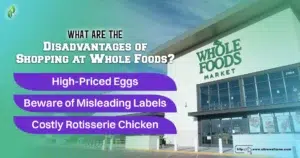
High-Priced Eggs
If you’re in the market for breakfast essentials like eggs, Whole Foods might not be your best bet. Their organic eggs often cost over $10 per dozen, giving them the title “whole paycheck” for a reason.
Despite the high quality, the price is high and may not be worth it for regular purchases.
Beware of Misleading Labels
In 2018, Whole Foods was criticized for deceptive pricing on pre-packaged foods. Even though the situation has improved, it’s still a good idea to be careful and steer clear of their pre-packaged food section when possible to make sure you’re getting a fair deal.

Instead of pre-packaged foods, you better go with healthy foods like apples, almonds, greek yogurt, etc. that can help you with your weight loss goals.
Costly Rotisserie Chicken
According to CNN Whole Foods’ rotisserie chicken, with a price tag of over $12, is noticeably pricier than similar products from stores like BJs, Costco, Sam’s Club, and Publix. Even though you’re paying more, the quality doesn’t always match up to Costco’s well-liked rotisserie chicken.
You might believe you’re purchasing a more humane product, but ProPublica found that Whole Foods’ organic chickens could be processed with non-organic, factory-farmed meat, casting doubt on their true cruelty-free status.
How Expensive Is Whole Foods?
If you’ve recently bought peanut butter at Whole Foods without a significant impact on your bank balance, you’re not the only one. As per Investopedia, Whole Foods’ prices are now on par with retailers like Sprouts and Kroger, evening out the competition.

A report by Morgan Stanley points out that Kroger is now only about 25% cheaper on average, a decrease from a previous 40% to 50% difference. Interestingly, a journalist in Vancouver found that Whole Foods was actually less expensive for organic produce compared to other local stores.
However, some people might still find Whole Foods pricey, which brings up a discussion about how we individually perceive the cost of groceries.
Is Everything at Whole Foods Organic?
Whole Foods Market, born in Austin, Texas in 1980, is your go-to place for natural and organic foods. It’s the biggest of its kind in the world.
Quality Assurance International (QAI) has given it a “Certified Organic” stamp. It means you can trust that Whole Foods follows strict rules when dealing with organic products.
From the moment they receive it to when it’s repacked and sold, everything is done to maintain the organic quality. To get this certification, stores have to stick to USDA National Organic Program rules, keep detailed records, and let inspectors visit their sites.
Is Whole Foods Worth It?
Yes, Whole Foods is worth it because it offers high-quality organic products, supports local producers, and provides exclusive Amazon Prime deals. Despite some higher prices, the store ensures product quality, environmental sustainability, and a unique shopping experience.
It ensures that the fruits, veggies, and dairy products are organic and properly labeled. It also helps local suppliers grow with its Local Producer Loan Program.
Plus, if you’re an Amazon Prime member, you get special deals and discounts, making your shopping more budget-friendly. So, while Whole Foods is more expensive at times, the mix of top quality, care for the environment, and ethical sourcing make it a good choice.
What’s Changed Since Amazon Bought Whole Foods?
Ever since Amazon bought Whole Foods in 2017, shopping there has become less of a hit on your wallet. Amazon’s goal was to make organic groceries easier to buy by cutting prices and adding more 365-label products.
If you’re an Amazon Prime member, you get to enjoy discounts at Whole Foods. This includes special deals in-store and big Prime Day discounts, sometimes up to 50%. Grocery stores usually don’t make a lot of profit. But Amazon, with its wide variety of products that bring in more profit, can afford to cut grocery prices and still make money.
It keeps Whole Foods competitive, but it can be tough on local grocery stores that can’t afford to lower their prices as much. But for you, the shopper, it means you can shop at Whole Foods without worrying so much about high prices.
Final Words
So, is whole foods worth it? To put it simply, Whole Foods is a place where you can find top-notch organic goods. They’re big on supporting local suppliers, letting you buy only what you want, and offering special deals for Amazon Prime members.
Yes, some things might cost a bit more, but you’re paying for outstanding quality, a commitment to the environment, and ethically sourced products. Looking ahead, we think Whole Foods will keep offering high-quality items at reasonable prices, thanks in part to Amazon.
So, if you value sustainability and high standards in your food shopping, Whole Foods could be a great fit for you. Hopefully, this makes your decision about shopping at Whole Foods a bit easier.
FAQs
How does Whole Foods support local producers?
Whole Foods supports local producers through its Local Producer Loan Program (LPLP). It provides loans to micro, local, and new producers in Canada and the U.S. This initiative underscores Whole Foods’ dedication to building relationships with local suppliers.
Are whole foods supplements good?
Yes, Whole Foods supplements are good. Unlike synthetic multivitamins, they contain phytonutrients, fiber, and vital fatty acids without artificial colors, fillers, or binders, offering a more natural and healthful option.
Is Whole Foods chemical-free?
Yes, they’re chemical-free. Whole Foods has banned high-fructose corn syrup, hydrogenated fats, saccharin, sucralose, aspartame, and over 300 other colors, flavors, preservatives, and ingredients from all the food they sell.

